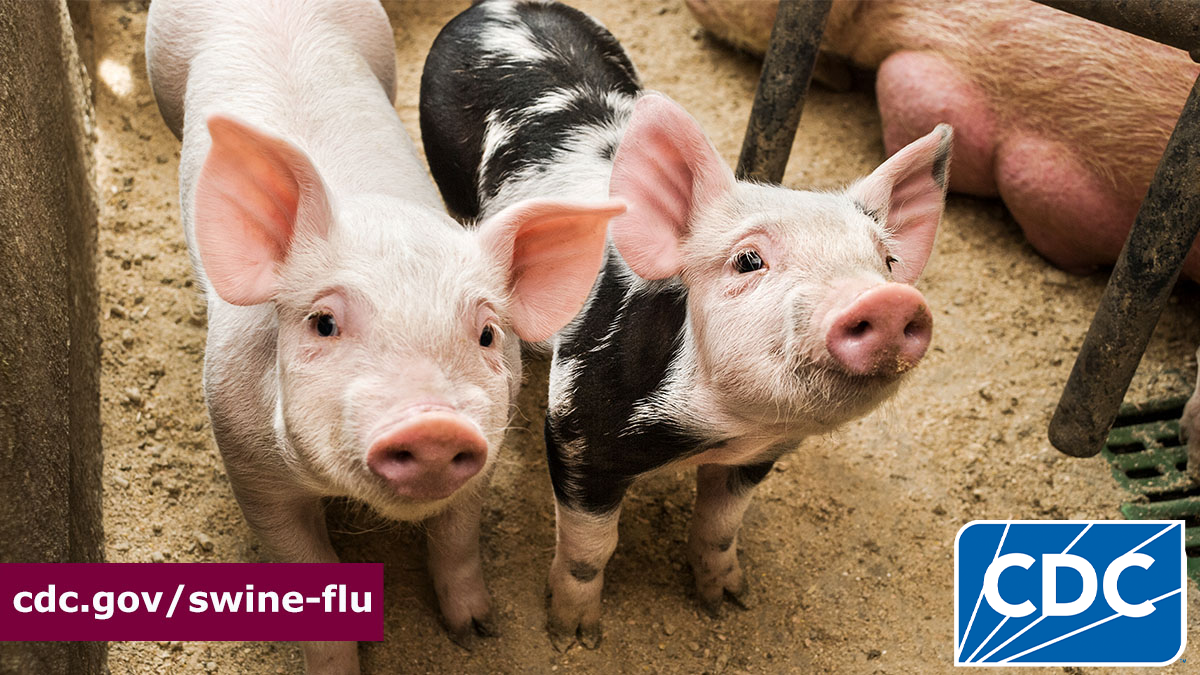Purpose
- Influenza antiviral drugs can be used to treat influenza infections, including human infections with influenza viruses that normally circulate in swine (variant influenza virus infections). There are four different antiviral drugs that are recommended for use in the U.S. for the treatment of influenza: oseltamivir, peramivir, zanamivir, and baloxavir.

What to do if you get sick
If you or your family members become sick with flu-like symptoms, take the following actions:
- Contact your health care provider and let them know about your symptoms and that you have been around pigs. Your doctor may prescribe treatment with flu antiviral medications and may want a nose and throat specimen collected from you for testing at your state health department. Antiviral treatment for flu works best when started soon after symptoms begin.
- Stay home from work and school, avoid travel, and avoid or limit contact with other people and pigs as much as possible until you know you do not have variant influenza virus infection. Take action to protect other people and healthy pigs from getting sick.
- Practice good respiratory and hand hygiene. This includes covering your mouth and nose with a tissue when coughing or sneezing and putting used tissues in a waste basket. Always wash your hands before and after coughing or sneezing. This is to lower the risk of spreading whatever virus infection you have to others.
Flu signs and symptoms
Treatment for novel influenza virus infections
Almost all flu cases in people are caused by human influenza viruses, not viruses from pigs. However, if you are infected with an influenza A virus of animal origin, the health department will want to talk with you about your illness and make sure that other people you live and work with are not sick with the same virus. If you do get sick with variant influenza, there are prescription antiviral medications that can treat your illness. Illnesses associated with variant influenza virus infection have been mostly mild with symptoms similar to those of human seasonal flu. However, serious illness can occur, especially in people who are at higher risk of developing serious flu complications. It is important to contact your doctor right away and tell them if you develop flu symptoms and have had recent exposure to pigs or settings where pigs are kept.
People at higher risk
Certain people are at greater risk of serious flu-related complications (including young children, elderly persons, pregnant women and people with certain long-term medical conditions) and this is true both for seasonal flu and novel flu virus infections. (A full list of people at higher risk of flu related complications is available at People at High Risk of Developing Flu-Related Complications.)
If these people develop flu-like symptoms, it's best for them to contact their doctor as soon as possible.
Your doctor may prescribe antiviral drugs that can treat flu, including variant influenza virus infection. These drugs work better for treatment the sooner they are started. If you are prescribed antiviral drugs by your doctor, you should finish all of the medication, according to your doctor's instructions.
Also, whenever you have flu symptoms and are seeing a health care provider, always remember to tell them if you have asthma, diabetes, heart disease, neurological and neurodevelopmental conditions, are pregnant, or are older than 65 or younger than 5 years. These conditions and age factors put you at high risk of serious complications if you have the flu.
Resources
General Public
Health Care Professionals
People Sick with Flu or Caregivers
Print Materials
- Graphic: Flu Can Spread Between Pigs and People [1.2 MB, 2 pages] | Spanish [1.2 MB, 2 pages]
- Key Facts for People Exhibiting Pigs at Fairs [545 KB, 2 pages]
- Take Action to Prevent the Spread of Flu Between People and Pigs [1.3 MB, 2 pages]
- Educational Poster [389 KB, 1 page]
- Compendium of Measures to Prevent Disease Associated with Animals in Public Settings, 2017
- Reduce Your Risk (English) [22 KB, 1 page] | (Spanish) [22 KB, 1 page]
Videos/Podcast
Dr. Lyn Finelli discusses CDC's recommendations for reducing the risk of infection with H3N2v flu viruses for fairgoers and swine exhibitors.
